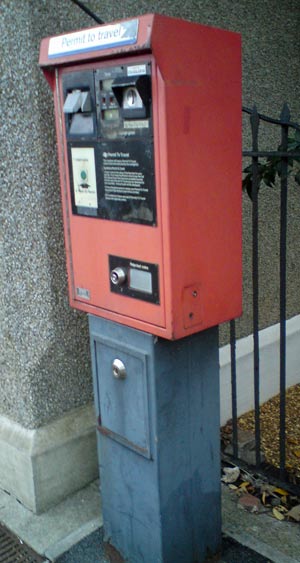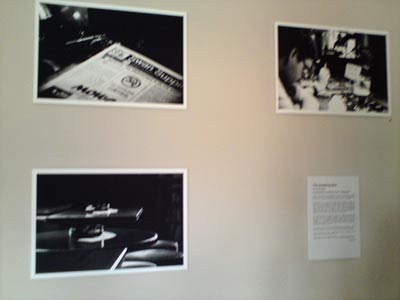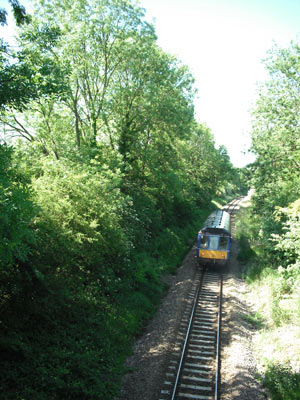After the Facebook campaign that led Tony Blair’s ‘A Journey’ to be involuntarily moved within bookshops to the war or crime sections, there’s much excitement that a passage from the book has been urged for short-listing in the Literary Review’s ‘Bad Sex Awards’. Â (Technically it isn’t eligible as it’s not fiction, but the organisers may alter the rules to include it.)
This was mentioned in an article by Susanna Rustin in The Guardian’s book section yesterday in which she advanced the argument (and also voiced some opposing views) that the modern British novel now shies away from anything like explicit descriptions of sex. This probably applies to a certain more literary strata of novels as the article cited the Man Booker Shortlist — there’s plenty of racy action still to be found in other genres of novel, as I found when skimming through a Freya North sort-of-chick-lit book recently.
Andrew Motion was quoted, apparently semi-facetiously, as saying that perhaps authors were scared of being nominated for the Bad Sex Award and the Literary Review’s entry on Wikipedia lists many previous winners as stars of the literary firmament: Sebastian Faulks, Tom Wolfe, Norman Mailer — and John Updike got a lifetime achievement award.
I wonder if all the people who would wish Tony Blair to join this company realise that the Bad Sex Award was invented by Auberon Waugh — whose conservative views were so detested by Polly Toynbee that she wrote a hostile article about Waugh three days after his death. (I would guess Waugh would also have detested the Blair government but for different reasons than most critics of ‘A Journey’.)
The article also had a very interesting Martin Amis quotation which, perhaps, sums up why many people (like me) find his technical ability to be sometimes quite spellbinding but are unmoved, or even repelled in some way, by the tone and attitude of his novels. He’s reported as saying at a literary festival ‘it’s “impossible” for a novelist to write about real, as opposed to pornographic, sex anyway. “Sex is irreducibly personal, therefore not universal,”‘ [he added later]'”It’s not that surprising. Of all human activities this is the one that peoples the world. With that tonnage of emotion on it, if there is going to be one thing you can’t write about then that would be it.’
I can see his argument — that he can write about sex in an ironically, pseudo-pornographic way because the formulaic narrative of most porn is something that is widely, perhaps not universally, recognised. But that seems to suggest a specific intent for a novel — that it exists to provide an ironic, maybe subversive, commentary on society’s mores or literature and other art forms themselves.
I think that’s a valid purpose for a novel, at least in part, but it appears to ignore one of the key differentiators about fiction as opposed to many other art forms. A novel is an entirely personal dialogue between an author and reader. It’s unlike more social forms of storytelling, like plays, films and television — which also provide visual and auditory representations. The personal nature of this dialogue also makes me query whether a public reading of a part of a novel can ever properly represent private, individual readings of a novel — apart from being influenced by irrelevancies like the reader’s public speaking skills, the audience reaction will influence one’s perception of the words and, unlike the private reading experience, one can’t pause to reflect, re-read a sentence and so on.
It seems the form’s ability to connect directly at a one-to-one level gives a novel’s author a unique opportunity to explore the personal rather than the universal. A novel can give its characters experiences that are beyond the knowledge of most, if not all, readers but by building connections between the personal and universal can create understanding and empathy for the most extraordinary characters and scenarios.
Therefore, because emotional experience is often the most personal and, often, least rational of human nature, I would think this is where the novel can explore in a way that is more intense and more insightful than other narrative forms. And there’s nothing that illuminates characters’ Â most inner emotions than their sexual motivations, attractions and behaviour.
The Guardian article suggests that it might not be the sniggering-behind-the-bike-sheds tone of the Bad Sex Award that’s preventing the literary authors from writing about sexual relationships but because it’s actually very hard to do. ‘But plenty of authors share the view that writing about sex is difficult, and presents particular challenges – and that sex that might be described as ordinary, or even enjoyable, is hardest of all.’  Hilary Mantel says ‘In good sex the individual personality kind of gets lost, people transcend themselves in a way. In bad sex people become hyper-aware of their bodies, the isolation of their bodies, of shame and humiliation.’
Of course, everything depends on the context but, if there’s a traditional ‘romantic’ narrative where two characters are attracted to each other and have a good and satisfying sexual experience I’d argue it’s as necessary to show this (principally as character development) as it would be to describe some sterile or comical failure — although the latter has more potential for dramatic conflict.
On how graphic a writer wants to make their depiction of sex, I think that all depends on the situation, the characters, the tone of the book (is it inclined towards metaphor and imagery), narrative viewpoint  (how would he/she/they/it view the scene?). I’m reminded of Graeme A. Thomson’s interpretation of Kate Bush’s ‘Running Up That Hill’ (see previous post) for how a male and female point-of-view might retell the same sexual experience.
In many cases novels probably work well enough to take the Hilary Mantel and Andrew Motion view that readers can do a bit of work and use their imagination — using hints and implications and ‘closing the bedroom door’. However, if interpreted as writing advice, it seems something of a cop-out. There’s a whole range of behaviour that can only be witnessed, by definition, behind the privacy of the bedroom door — characters may act in a completely different, surprising and uninhibited way. This might not always be relevant to the later narrative but it could be — many an otherwise odd coupling might be held together by what goes on in the bedroom and, conversely, it might doom ostensibly compatible pairings.
The biggest argument against writing explictly about sex is perhaps the range of language available. Colm Toibin is quoted in the article as saying: ‘If you give in to any simile, any metaphor, any set of feelings, any flowery language, the modern reader’s irony will come to the fore.’  So if similes and metaphors are out and you also exclude the sort of vocabulary that would remind you of a doctor’s surgery, you’re left with not many words left — and if you avoid the Anglo-Saxon then there’s even less.
Toibin praises Ian McEwan’s ‘On Chesil Beach’ as the ‘perfect example. “There isn’t one single piece of language that describes anything other than what occurred.”‘ However, I know from discussing this book personally that it’s exactly that clinical tone to the prose that has made some readers detest that final section of the book — as it’s a story of sexual failure and miscommunication perhaps the language is appropriate but it’s not, in Hilary Mantel’s words, about people ‘transcending themselves’.
Oddly enough, while literary authors are (if you accept this article’s argument) backing away from the representation of sex and some concluding it’s perhaps impossible to do properly, BBC1 is now presenting an hour and a half of some of the most sexualised entertainment for Saturday tea-time viewing.
While the likes of Anne Widdecombe and Paul Daniels are about as asexual as one can imagine, some of the more accomplished dance partnerships move in a way that might cause some of the literary novelists to shy away — ‘he put his hand on her what?’ and so on. I’m no expert of the various dances but clearly many have highly eroticised Latin roots. Many of these dances, with their close physical contact and outfits that are more bare skin than material, are actually transcendent representations of people having the sort of good, enjoyable sex (with hints occasionally of some less wholesome variations) that Mantel and Motion believe is difficult for the novelist to represent.
I know a number of writers who enjoy dancing — either something like Tango or other types as well as getting into ‘Strictly’ — so I think there’s something quite deep-seated in this between dancing and uninhibited self-expression.  It’s also interesting that so few professionals on ‘Strictly Come Dancing’ are British (less than a third, I think, with the rest being Italian, Australian, Russian, American and Eastern European’) — perhaps the Guardian article’s concerns are very specific to the British novelist — it does seem that one might learn more about genuine sexual attraction by watching Bruce Forsyth’s programme than reading the Man Booker shortlist.









